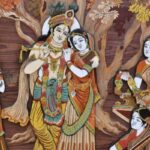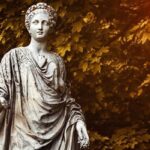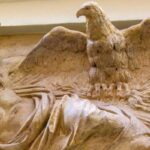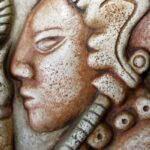We explain who the ancient Greek gods were, what their characteristics were and their complete genealogy. Also, what was the worship of these gods like.
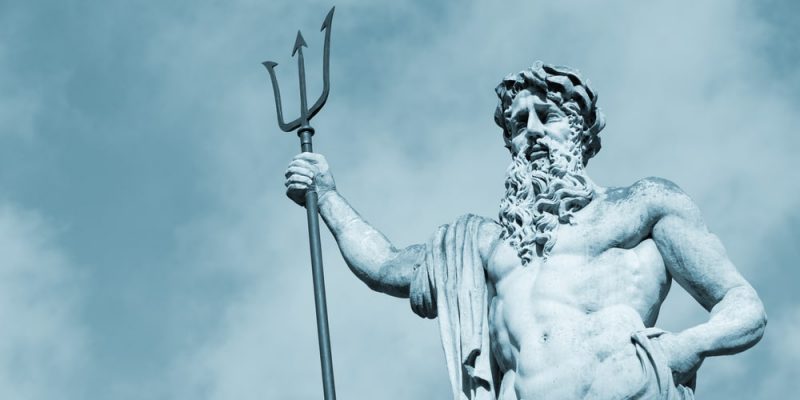
Who were the ancient Greek gods?
The ancient Greek gods were the set of deities that were part of the pantheon of the mythology of Ancient Greece (800-150 BC). These deities were worshiped by the Greeks and played an important role in various aspects of their culture. They were believed to have control over natural phenomena and could influence human destiny.
Some of the best-known Greek gods are Zeus (king of the gods and ruler of the sky), Hera (wife of Zeus and queen of the gods), Poseidon (god of the sea), Athena (goddess of wisdom and war), Aphrodite (goddess of love and beauty), Ares (god of the underworld), Hermes (messenger and trade god), Dionysus (god of wine and fertility) and Apollo (god of the sun, music and prophecy).
Each of these gods had their own domain, personality, associated myths, and specific cult in Ancient Greece. Its influence on Greek culture extends from religion to art, literature and philosophy.
Key points
- The Greek gods of Antiquity made up the pantheon of Ancient Greek mythology and were worshiped by the Greeks.
- They were considered controllers of natural phenomena and human destiny.
- These gods (Zeus, Hera, Poseidon, Athena, Aphrodite, Ares, Hermes, Dionysus and Apollo, among others) had specific domains, distinctive personalities and were venerated through different rituals.
- The most important characteristics of the Greek gods were their anthropomorphism, their immortality, their supernatural powers, their frequent interactions with humans, and their complicated family relationships and human emotions.
- The genealogy of the Greek gods stretched across several generations: from the primordial titans such as Cronus and Rhea, through the Olympian gods such as Zeus, Hera and Poseidon, to the heroes and demigods such as Heracles, Perseus, Theseus and Achilles.
- The worship of Greek gods in ancient times was an essential part of daily life and culture. It involved the construction of temples and shrines, various religious rituals, festivities in their honor, and the consultation of oracles for divine guidance.
Characteristics of the ancient Greek gods
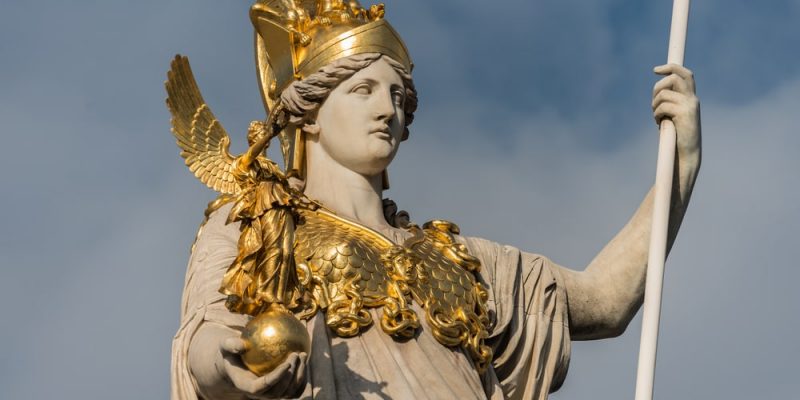
Among the main characteristics of the ancient Greek gods are:
- Anthropomorphism The Greek gods were imagined as anthropomorphic beings, that is, they had human form and exhibited characteristics typical of people.
- Immortality The Greek gods were immortal, meaning they did not age or die from natural causes. However, they could be wounded or defeated in combat by other gods or divine creatures.
- Supernatural powers Each Greek god possessed specific supernatural abilities and powers associated with their domain.
- Interactions with humans Despite their divine status, the Greek gods regularly interacted with humans. They often intervened in earthly affairs, either to help, punish, or manipulate mortals according to their own interests and desires.
- Complicated families and relationships The Greek gods formed a complex network of family relationships, with Zeus and Hera as the main supreme gods and a host of lesser gods, demigods, and mythical creatures also playing important roles in mythology.
- Human behavior Despite their divine power, the Greek gods behaved like humans and had the same feelings and emotions, such as jealousy, anger, love, desires for revenge and whims. Their actions could be impulsive and their motivations ambiguous.
Genealogy of the ancient Greek gods
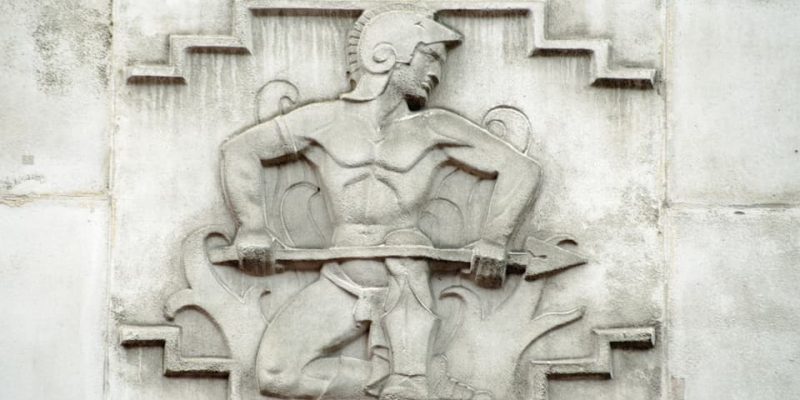
In Greek mythology, stories about the gods span several generations, each with their own distinctive dynamics and characters.
The first generation of gods: the titans
The Titans were a race of powerful primordial deities who preceded the rest of the gods of Greek mythology. They were considered the first generation of gods due to their antiquity and their role in the origin of the cosmos.
These primordial gods were children of Uranus (the sky) and Gaia (the earth), and represented the elemental forces in the creation of the universe. Among the most notable titans were Cronus, Rhea, Oceanus, Hyperion, Thetis and Mnemosyne.
Cronus, in particular, played a crucial role in the development of Greek mythology, as he overthrew his father Uranus and established himself as ruler of the cosmos. However, an oracle warned him that he himself would be overthrown by one of his own sons. To avoid losing his power, Cronus devoured each of his children at birth.
In view of this, Rhea, his wife, devised a plan to save her children. When Zeus, the sixth child, was born, Rhea hid him and instead gave Cronus a stone wrapped in swaddling clothes, which the god devoured unsuspectingly. Zeus was raised in secret on the island of Crete and grew to become a powerful god.
When he reached adulthood, Zeus returned to confront his father Cronus and freed his brothers swallowed by him. Then all the brothers allied themselves against the Titans and fought a great war, known as the Titanomachy.
The second and third generation of gods: the Olympians
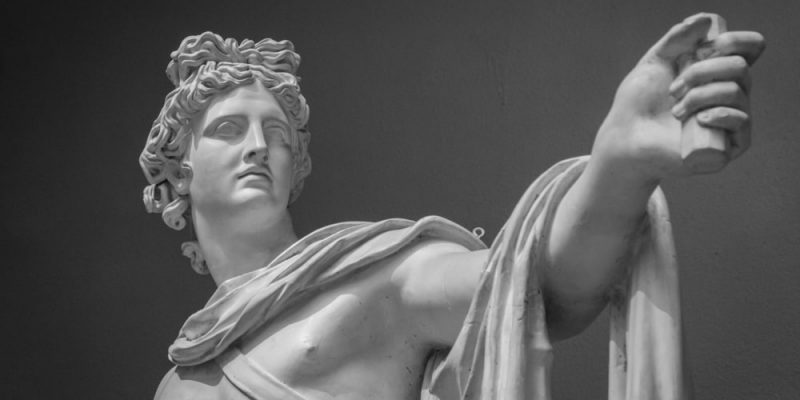
The second generation of gods was that of Zeus and his brothers. After defeating the titans, Zeus became the king of the gods. He ruled the sky, while Poseidon ruled the sea and Hades, the underworld. These gods took up residence on Mount Olympus, and from there they dominated the cosmos and ushered in a new era in Greek mythology.
The Olympian gods had many children and established a very complex family network, marked by conflicts, rivalries and shifting alliances. In this way, many stories were created that narrated the disputes between gods and how they influenced the lives of humans.
Among the most important Olympian gods were:
| Name | Attributes | Symbols | Characteristics | |
|---|---|---|---|---|
| 1 | Zeus | God of heaven. | The lightning bolt and the eagle. | King of Olympus and leader of the gods. He was known for his numerous love affairs and his role as the father of many gods and heroes. |
| 2 | Hera | Goddess of marriage and family. | The peacock and the pomegranate. | Queen of Olympus, wife and sister of Zeus. She was known for her ferocity against Zeus's lovers and her enormous power. |
| 3 | Poseidon | God of the sea. | The trident and the horse. | Brother of Zeus and Hades. He ruled the oceans and had an irascible and volatile temperament. |
| 4 | Athena | Goddess of wisdom, strategy and just war. | The owl, the olive tree and the helmet. | Goddess born from the head of Zeus. She was a formidable warrior, protector of cities and heroes. |
| 5 | Apollo | God of the sun, music and poetry. | The sun, the lyre and the bow and arrow. | Known for her beauty and her skill with the bow and arrow. He was a patron of the arts and sciences, as well as a prophet at the Delphic oracle. |
| 6 | Sagebrush | Goddess of hunting and wild nature. | The moon, the deer and the bow with arrow. | Chaste and virgin goddess, expert hunter and protector of wildlife. It was associated with the moon and was the protector of women and children. |
| 7 | Hermes | God of communication and commerce. | The caduceus (staff), the winged sandals and the petasus (winged helmet). | Known for his cunning and speed, as well as his role as a guide of souls to the underworld. He was also the inventor of the lyre and the caduceus. |
| 8 | Aphrodite | Goddess of love and beauty. | The seashell, the dove and the rose. | Known for her irresistible charm and influence on love affairs. She was born from the foam of the sea and was the wife of Hephaestus, although she had numerous divine and mortal lovers. |
| 9 | Dionysus | God of wine and fertility. | The vine and the ivy. | Known for his outgoing nature and his ability to induce ecstasy and madness. He was the patron saint of festivities and celebrations, as well as the protector of vineyards and viticulture. |
| 10 | Hephaestus | God of fire. | The hammer, the anvil and the fire. | Known for his skill in forging and creating weapons and tools, as well as his limp. He was the husband of Aphrodite and a resourceful and talented god. |
| 11 | Demeter | Goddess of agriculture. | The wheat and the ear. | Goddess associated with agricultural cycles and the seasons of the year. She was the protector of crops and the fertility of the land. |
| 12 | Hestia | Goddess of home and family. | The fire of the home. | Revered as the protector of the home and the sacred fire. Although she was not as prominent in mythology as other Olympian gods, she was considered an essential figure in everyday life and religious ceremonies. |
The fourth generation of gods: the heroes and demigods
The fourth generation of gods consisted of many famous demigods from Greek mythology, such as Heracles (Hercules), Perseus, Theseus, and Achilles, who were products of the union between gods and mortals. These heroes carried out numerous feats that turned them into legendary figures.
Unlike the Olympian gods, the demigods were mortal, that is, they were subject to aging and death. Although they possessed exceptional abilities and could perform heroic feats, they eventually faced their fatal fate. They were known for their legendary adventures, in which they fought monsters, performed incredible deeds and met difficult challenges.
Among the main heroes and demigods of Greek mythology, the following stand out:
- Heracles (Hercules) He was one of the most prominent heroes of Greek mythology, son of Zeus and Alcmene, a mortal. He performed the famous Twelve Labors (a punishment imposed under the influence of Hera), and was known for his superhuman strength and his fight against monsters and formidable enemies.
- Perseus. He was the son of Zeus and Danae, a mortal. He was known for having decapitated the gorgon Medusa and for saving Princess Andromeda from a sea monster. He used a number of divine tools and gifts, including the head of Medusa, to complete his feats.
- Theseus. He was the son of Aegeus, king of Athens, and Etra, a princess. He was known for killing the Minotaur in the labyrinth of Crete and freeing Athens from its human tribute. He also participated in other adventures, such as the Argonauts expedition and the battle against the Amazons.
- Achilles. He was the son of the goddess Thetis and the mortal Peleus. He was one of the most notable heroes in the Trojan War, known for his strength, bravery and skill in battle and his tragic death caused by a poisoned arrow in the heel.
The cult of the ancient Greek gods
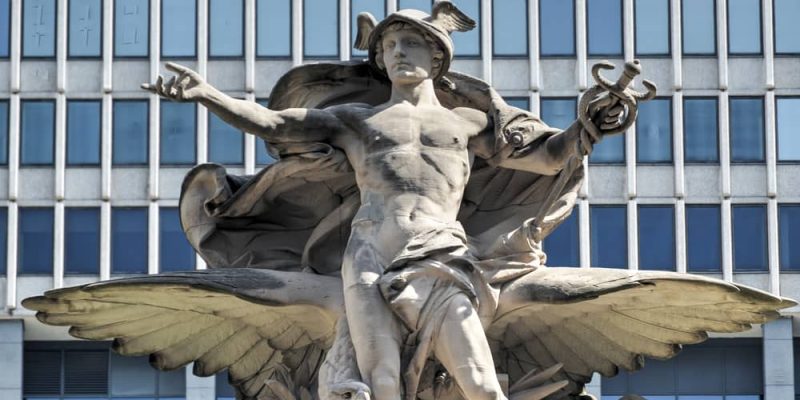
In Ancient Greece, the worship of the gods was an essential part of daily life and culture. The Greeks built temples and sanctuaries dedicated to their deities throughout the land, from cities to fields and mountains. These sacred places served as centers of worship and veneration, where the faithful performed rituals and ceremonies to honor the gods.
Religious rituals were varied and included prayers, animal sacrifices, and offerings of food and other material goods. These acts were aimed at seeking divine favor and protection, as well as showing gratitude and devotion to the gods. In addition, they held other types of celebrations in honor of their gods, such as athletic competitions (the best known were the Olympic Games), theatrical performances and public banquets.
Oracles played an important role in religion, as the Greeks consulted these sacred sites and their priests for divine guidance and advice on important matters. The oracle at Delphi, dedicated to Apollo, was especially revered and attracted pilgrims from all over Greece in search of answers to their questions.
References
- Daly, K. (2004). Greek and Roman Mythology. A to Z. Facts on File.
- Evslin, B. (2012). Gods, Demigods and Demons. An Encyclopedia of Greek Mythology. Open Road Media.
- Kte'pi, B. (2008). Greek Mythology and Pantheon. In M.E. Ackermann et al. (Eds.). Encyclopedia of World History, vol I: The Ancient World: Prehistoric Eras to 600 ce Facts on File.

